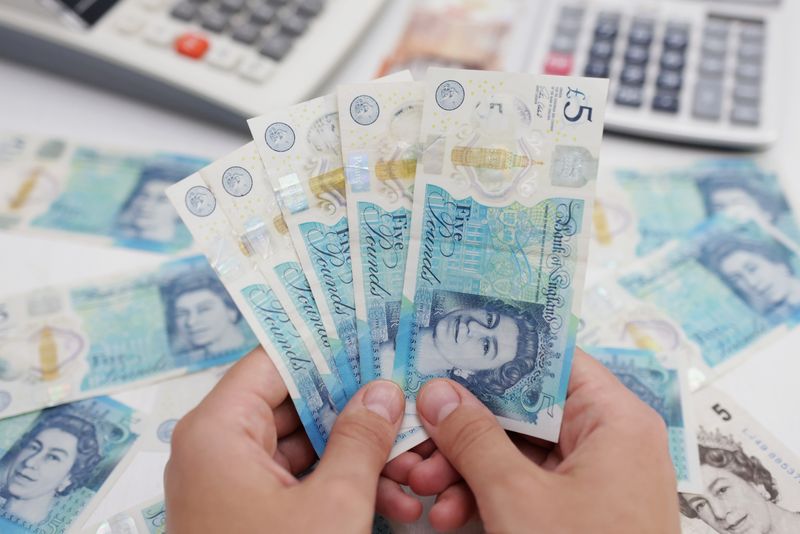By Stefano Rebaudo
(Reuters) - Sterling GBP/USD was slightly higher against the dollar on Tuesday after Purchasing Managers' index (PMI) data from Britain showed that business activity slowed roughly in line with expectations.
The PMI composite flash estimate dropped to 50.9 in August from 52.1 in July. Economists polled by Reuters had forecast the index would fall to 51.1.
The pound hit a fresh 2-1/2-year low versus the greenback earlier in the session on concerns that Britain's PMI data would have kept the pound without any solid floor against the dollar.
It erased its early losses after data from the euro zone's lead economies showed business activity slowed less than expected in August.
By 0901 GMT, sterling rose 0.05% versus the dollar to $1.1771 after hitting its lowest since end-March 2020 at $1.1718.
The U.S. dollar index was marginally lower while the euro dropped to a fresh two-decade low by renewed concern that an energy shock will keep inflation elevated and makes a recession in Europe all but certain.
"The pound remains weak and might fall further - probably even down to 1.15 against the greenback – due to recession fears in the UK and despite PMI data roughly in line with expectations," said Roberto Mialich, strategist at Unicredit (BIT:CRDI).
Analysts said sterling was no longer positively correlated with interest rates as recession fears were prevailing over any further potential monetary tightening after the Bank of England (BoE) lifted the policy rate to 1.75% early this month.
The pound rose 0.1% versus the euro to 84.41 pence against the euro.
"EUR/GBP should keep trading in tighter ranges, as markets see the eurozone's and the UK's economic outlook following similar rocky paths. Oscillations within the 0.8400-0.8500 range may continue to rule in the near term," ING analysts said.

Speculators' net long positioning on the U.S. dollar rose in the latest week, while net shorts on the euro increased, according to data released last week.
"CFTC data suggest that August saw euro (net) short positions grow, but sterling ones shrink back. The market is still short sterling, but not short enough to offset the threat from a weakening economy and a political vacuum," said Kit Juckes, macro strategist at SocGen.